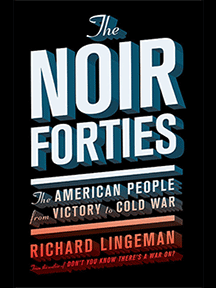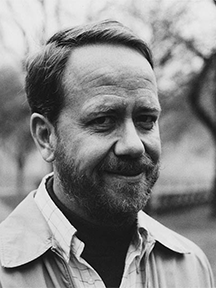
By Austin Alexander
In 1956 Richard Lingeman left Yale Law School after only one year of study. Tax law, the future executive editor of The Nation had discovered, was not his calling after all. He had spent his brief stint as an Ivy Leaguer not poring over textbooks but writing what he describes as “parodies and pasquinades” for Monocle, a small-time publication for political satire founded by graduate students at the university. By 1960 he was working in New York as the paper’s executive editor. As he says on his website, “Thus, as a law school dropout I began my career as an editor and writer.”
But Lingeman developed into no ordinary wordsmith. Through his work for The Nation, the time-honored mouthpiece of the American Left, he has gained a reputation as one of the most potent satirists and cultural critics of the last fifty years. In his prolific career he has, aside from writing biographies of Sinclair Lewis and Theodore Dreiser, served as a Pulitzer Prize juror and a staff writer for The New York Times Book Review. Simply put, Lingeman has effectively traversed the American literary landscape, leaving a legacy of wit and wisdom wherever he has wandered.
But what inspired Lingeman, most notably in the American Book Award-nominated Small Town America, to turn a discerning eye toward traditional sensibilities? He was, after all, born in a brick house in the Midwest and is a self-proclaimed member of the so-called Silent Generation.
The answer lies mainly in the years leading up to his brief tenure at Yale. After graduating from Haverford College in 1953 with a degree in sociology and a Phi Beta Kappa key, Lingeman enlisted in the Army Counter-Intelligence Corps. Against the backdrop of containment of communism and the Korean War he was sent to Japan to spy on ultra-nationalist political groups for Uncle Sam, quickly finding himself “plunked in an appalling hotbed of mccarthyism.” The right-wing rabblerousing of the postwar period culminating in the Red Scare had, as Lingeman recently disclosed in an interview with The Nation, “forced a kind of conformity that [he] felt personally.” After his discharge he turned toward satire to break this mindset, and the aspiring tax lawyer became one of the American Left’s leading men of letters.
As Lingeman’s own experiences show, the postwar years were anything but the halcyon days of peace that a battle-weary nation had hoped for. The rapid onset of the Cold War signified to the American people, still recoiling from the trauma and disillusionment of the deadliest conflict in human history, that there would be no respite from the specter of death. By the early 1950’s this uncertainly and fear had calcified into a widespread cultural malaise marked by communist witch hunts and nuclear panic. While many assuaged their anxiety by toeing the ideological hardline, others, like Lingeman, simply felt a profound sense of alienation.
Visibly, it was a difficult time to live through and an even more difficult one to make sense of. But in his newest book The Noir Forties Lingeman does just that, analyzing national political trends through the lens of what was likely the only slice of American culture experiencing a Golden Age: Hollywood. In the dominant genre of film noir, Lingeman finds evidence of an acute ennui brought on by postwar insecurity. As he tells The Nation, these films – noted for their dark photography, scenes of death and urbane yet desperate and isolated characters – accurately reflect the “tough, calloused, cynical time” in which they were made.
It is in Lingeman’s ability to weave cultural criticism with his own remembrances of the postwar zeitgeist—he calls the book an “historical enlargement of [his] smaller personal memories”—that The Noir Forties really succeeds. He does much more than root out the source of his own disaffection with the American mainstream. Rather, using film and other forms of media as evidence, Lingeman brilliantly traces the evolution of cultural and political attitudes that defined an entire generation of Americans. Of course, in doing so, Lingeman does more than illuminate a bygone era; true to his sometimes caustic nature, he tells us a little something about ourselves.
Austin Alexander is a senior at Clark University majoring in history. Clark is home to the Lambda of Massachusetts chapter of Phi Beta Kappa.




